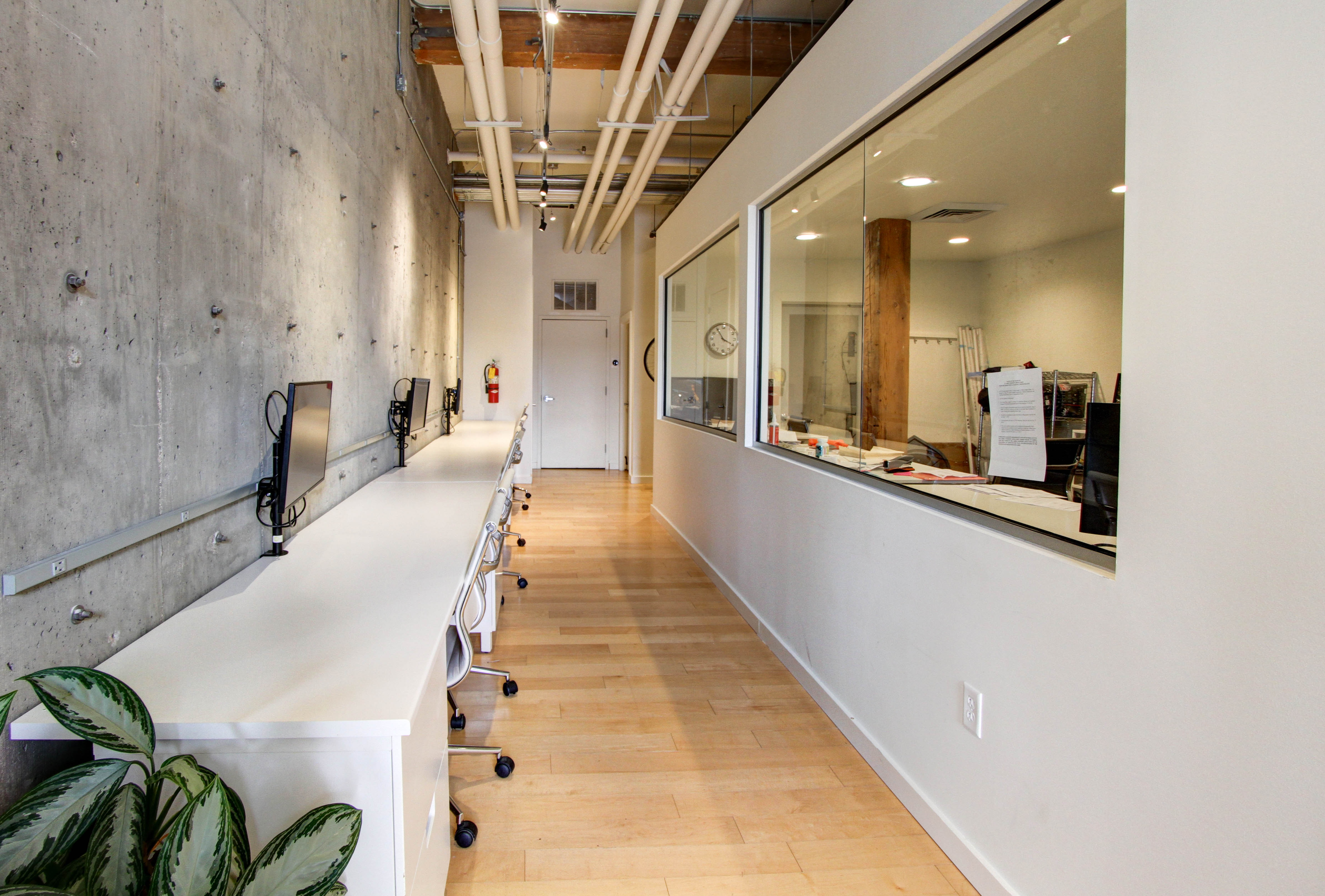An Overview of ESO -- Employee Stock Ownership
ESO, or Employee Stock Ownership, is a type of business model where employees have an ownership stake in the company. This can be in the form of stock options or a profit-sharing plan, which allows employees to share in the company’s profits.
One advantage of ESO businesses is that they can foster a sense of ownership and investment among employees. When employees have a financial stake in the success of the company, they are more likely to be motivated and engaged in their work. This can lead to higher productivity and better overall performance.
Another advantage of ESO businesses is that they can provide a sense of security and stability for employees. Because employees have an ownership stake in the company, they have a vested interest in its long-term success. This can make them more loyal and less likely to leave the company, reducing turnover and improving morale.
In addition, ESO businesses can also provide a way for employees to build wealth over time. As the company’s value grows, so does the value of the employees’ ownership stake. This can provide employees with a source of financial security and potentially allow them to retire with a significant nest egg.
However, there are also challenges to ESO businesses. One potential challenge is that employees may not have the knowledge or expertise to make informed decisions about the company’s financial health. This can lead to conflicts and misunderstandings, particularly if employees feel that the company’s leadership is not acting in their best interests.
Additionally, ESO businesses can also be complex and require careful planning and administration. This can be particularly challenging for small businesses, which may not have the resources to devote to setting up and managing an ESO plan.
In conclusion, ESO businesses can provide a range of benefits, including fostering a sense of ownership among employees, providing stability and security, and allowing employees to build wealth over time. However, they can also be complex and require careful planning and management to be successful.
If you're looking for other ways to boost morale at your company, and offer employees flexibility and support, consider reimbursing them for a membership in a coworking space, like Work Hive. Coworking is a great way to support your employees' work environment, with office amenities and opportunities for networking. Work Hive is located in Downtown Salt Lake City, Utah and across town in Sugar House.
Customer Service Can Make or Break Relationships with Customers - 4 Keys to Success
Customer service is an important aspect of running a small business. It can be the difference between a satisfied customer who will return to your business and spread the word to others, and a dissatisfied customer who will never come back and potentially harm your reputation with negative reviews.
1. Good customer service starts with making a positive first impression. This can be as simple as greeting customers with a smile and a friendly hello when they enter your store or shop. If you run an online business, this might involve responding quickly to customer inquiries and providing clear and helpful information on your website.
2. Another key aspect of good customer service is listening to your customers. This means paying attention to what they have to say and taking the time to understand their needs and concerns. It’s important to be empathetic and try to see things from their perspective. If a customer is unhappy with a product or service, take the time to listen to their feedback and try to come up with a solution that will address their concerns.
3. Be responsive. This means addressing customer concerns and issues in a timely manner. If a customer reaches out to you with a question or complaint, make sure to respond as quickly as possible. This shows the customer that you value their business and are willing to go the extra mile to make sure they are satisfied.
4. Providing excellent customer service often involves going above and beyond for your customers. This might mean offering personalized recommendations, providing special discounts or promotions, or offering additional support and assistance. By going the extra mile for your customers, you can create a loyal customer base who will keep coming back to your business and spread the word to others.

By making a positive first impression, listening to customers, being responsive, and going above and beyond, small businesses can create loyal customers and build a strong reputation.
One way to make a great first impression is to meet your clients in one of our conference rooms. Work Hive conference room TVs are equipped with Apple TV (for wireless AirPlay) and HDMI cables for other devices, as well as large white boards, meaning you can present your ideas whether you want to go digital or analog. Fully equipped conference rooms are available in our Downtown Salt Lake City and Sugar House locations.
Building A Team and Fostering Company Culture
As a small business owner, building a strong team and fostering a positive company culture is essential for success. This can be challenging, especially when your team is working remotely or in a coworking space. But with the right approach, you can create a positive and productive work environment that supports your business goals.
 One of the key elements of building a strong team is creating a sense of connection and collaboration. This means fostering open communication and encouraging team members to work together and support each other. It's also important to provide opportunities for team members to get to know each other and build relationships, such as through team-building activities and social events.
One of the key elements of building a strong team is creating a sense of connection and collaboration. This means fostering open communication and encouraging team members to work together and support each other. It's also important to provide opportunities for team members to get to know each other and build relationships, such as through team-building activities and social events.
Another important aspect of building a strong team is providing support and guidance. This means being available to answer questions and provide feedback, as well as offering training and development opportunities to help team members grow and learn. It's also important to recognize and reward team members for their contributions and achievements.
In addition to building a strong team, it's also important to foster a positive company culture. This means creating a work environment that is inclusive, respectful, and supportive. It's also important to establish clear values and expectations, and to make sure that everyone on the team is aligned with these values and working towards the same goals.
A flexible work environment can also be beneficial for fostering a positive company culture. This could mean providing flexible work arrangements, such as allowing team members to work from home or in a coworking space. This can help team members feel more in control of their work-life balance and can improve morale and productivity.
Overall, building a strong team and fostering a positive company culture are essential for the success of your small business. By creating a supportive and inclusive work environment, you can help your team members thrive and support your business goals.
Work Hive is fun community coworking space, with the amenities you need to make your workday productive -- natural lighting, adjustable height desks in a quiet work studio, coffee, conference rooms, phone rooms, and, of course, high-speed internet. If we can do anything to set your team up for success, please let us know!
Controlling Costs to Maximize Profitability
As a small business owner, managing your finances and controlling costs are essential for maximizing profitability. This can be a challenging task, especially in the early stages of your business, when you may be operating on a tight budget. But with the right approach, you can effectively manage your finances and keep your costs under control.
First, it's important to create a budget and stick to it. This means setting clear financial goals and forecasting your income and expenses. This can help you understand how much money you have to work with and where it's going. It's also a good idea to regularly review your budget to ensure that it's still on track and to make any necessary adjustments.
Next, it's crucial to carefully manage your cash flow. This means monitoring the money coming into and going out of your business and making sure you have enough to cover your expenses. It's also important to plan for unexpected expenses and to have a reserve of cash or credit to fall back on if needed.
Another key aspect of managing your finances is controlling costs. This means looking for ways to reduce expenses and increase efficiency in your business. This could include things like negotiating better rates with suppliers, reducing waste, and finding ways to automate or streamline processes. It's also important to regularly review your expenses to see if there are any areas where you can cut costs without sacrificing quality or customer satisfaction.
Finally, it's essential to keep track of your financial performance and make informed decisions based on the data. This means regularly reviewing your income and expenses, and using tools like financial ratios and break-even analysis to understand your profitability. It's also important to seek out professional advice and support, such as from an accountant or financial advisor, to help you manage your finances and make the best decisions for your business.
Managing your finances and controlling costs are critical for the success of your small business. By taking a strategic and disciplined approach, you can ensure that your business is profitable and sustainable in the long term.

Work Hive is a convenient and flexible community coworking space. We have the amenities you want and need to make your workday productive -- natural lighting, adjustable height desks in a quiet work studio, coffee, conference rooms, phone rooms, and, of course, high-speed internet. Book a tour, or give us a call if you would like to learn more or try it out!
4 Keys to a Successful Product Launch
As a small business owner, one of the most exciting things you can do is launch a new product or service. This can be a great way to grow your business and reach new customers, but it can also be a daunting task. Here are some tips to help you successfully launch a new product or service.

1. First, it's important to carefully plan and research your new offering. This means understanding your target market and what they need or want. Conducting market research can help you identify potential customers and gather insights into their preferences and behavior. This can also help you understand the competition and position your product or service in a way that sets it apart.
2. Once you have a clear understanding of your market and product, it's time to develop a launch plan. This should include setting clear goals and objectives for the launch, as well as a timeline for key activities such as product development, marketing, and sales. It's also important to determine how you will measure the success of the launch, so you can make adjustments and improvements as needed.
3. Next, you'll need to create a marketing and sales strategy to reach potential customers and drive demand for your new product or service. This could include a range of activities, such as advertising, public relations, social media marketing, and email marketing. It's also important to build buzz and anticipation for the launch, through things like pre-launch promotions and special offers.
4. Finally, it's essential to manage the launch process carefully, to ensure that everything goes smoothly. This means working closely with your team, suppliers, and other stakeholders to ensure that everything is on track. It's also important to be prepared for potential challenges or issues that may arise, and to be ready to pivot or make changes as needed.
Launching a new product or service can be an exciting and rewarding experience for small business owners. By carefully planning and executing your launch, you can increase your chances of success and grow your business in the process.
If you have other strategies for managing product launch within a small business, share those ideas with your network at Work Hive! As this is an ever-evolving topic, it is never a bad idea to share your latest strategies with your fellow Work Hive community members in Salt Lake City. Work Hive is a great place to grow your network!
Cybersecurity Basics for Small Business Owners
 As an entrepreneur, it's important to prioritize cybersecurity for your small business. With the increasing prevalence of cyber threats, protecting your business's sensitive information is crucial.
As an entrepreneur, it's important to prioritize cybersecurity for your small business. With the increasing prevalence of cyber threats, protecting your business's sensitive information is crucial.
One of the biggest advantages of being a small business owner is the ability to be flexible and adapt to change. This same flexibility can be applied to your cybersecurity strategy. By regularly reassessing and updating your security measures, you can stay one step ahead of potential threats.
First and foremost, make sure to use strong, unique passwords for all of your business's online accounts. Avoid using the same password for multiple accounts, and consider using a password manager to generate and store complex passwords.
Next, invest in reliable security software. This can include antivirus and anti-malware programs, as well as a firewall to protect your business's network. Regularly update this software to ensure that it can defend against the latest threats.
Additionally, educate your employees on cybersecurity best practices. This can include training on how to create strong passwords, recognize phishing attempts, and safely handle sensitive information. By creating a culture of security within your organization, you can reduce the risk of a breach.
It's also important to regularly back up your business's important data. In the event of a cybersecurity attack or data loss, having backups can help you recover quickly and minimize the impact on your business.
By being proactive and flexible in your approach, you can protect your business and its sensitive information from potential threats.
If you have other strategies for managing cybersecurity within a small business, share those ideas with your network at Work Hive! As this is a constantly evolving issue with constantly evolving strategies for mitigation, it is never a bad idea to share your latest strategies with your fellow Work Hive community members in Salt Lake City.
Building Your Professional Network
Professional networking is an essential part of building a successful career. By building and maintaining a strong network of contacts, you can gain valuable advice, support, and opportunities that can help you advance in your field. Here are a few tips for effectively networking as a professional.
 First and foremost, focus on building genuine relationships. Instead of just collecting business cards and looking for opportunities, try to truly connect with the people you meet. Ask questions, listen to their answers, and try to find common ground. By building genuine relationships, you can create connections that are more meaningful and valuable in the long term.
First and foremost, focus on building genuine relationships. Instead of just collecting business cards and looking for opportunities, try to truly connect with the people you meet. Ask questions, listen to their answers, and try to find common ground. By building genuine relationships, you can create connections that are more meaningful and valuable in the long term.
Another key aspect of effective networking is to be proactive. Don't wait for opportunities to come to you – go out and seek them out. Attend networking events, join professional organizations, and participate in online communities related to your field. By being proactive, you can increase your chances of making valuable connections.
It's also important to follow up and stay in touch with the people you meet. After networking events or meetings, make sure to send a follow-up email or message to thank the person for their time and to remind them of who you are. This will help keep you top of mind and maintain the connection.
Additionally, be willing to offer help and support to others. As you build your network, you may be able to offer valuable advice, introductions, or other assistance to the people you meet. By being generous and helpful, you can create strong, mutually beneficial relationships that can pay off in the long term.
Work Hive is a community of professionals across industries and roles -- from marketers to web developers to non-profit organizers and designers, someone in our network of members likely has expertise you could draw on to help your business solve its current pain points... ask around at Work Hive! We're located in Salt Lake City, Utah, with offices Downtown and in Sugar House. Work Hive is a great place to grow your network.
Marketing 101
Creating a marketing strategy is an essential part of running a successful business. A well-developed marketing plan can help businesses attract and retain customers, increase brand awareness, and drive sales. Here are a few key steps to follow when creating a marketing strategy.
 First and foremost, conduct market research. This is essential for understanding your target audience and their needs, as well as your competitors and the market landscape. By conducting thorough market research, you can gain valuable insights that will inform the rest of your marketing plan.
First and foremost, conduct market research. This is essential for understanding your target audience and their needs, as well as your competitors and the market landscape. By conducting thorough market research, you can gain valuable insights that will inform the rest of your marketing plan.
Next, define your marketing goals and objectives. What do you want to achieve with your marketing efforts? Do you want to increase sales, build brand awareness, or improve customer loyalty? Clearly defining your goals and objectives will help you stay focused and measure the success of your marketing efforts.
After you have defined your goals and objectives, it's time to develop a marketing plan. This should include a detailed description of your target audience, your marketing message, and the specific tactics you will use to reach your goals. Your marketing plan should also include a budget and timeline for implementing your marketing strategy.
Once your marketing plan is in place, it's important to regularly monitor and adjust your strategy as needed. This will help you stay on track and ensure that your marketing efforts are effective.
By conducting market research, defining your goals and objectives, developing a plan, and regularly monitoring and adjusting your strategy, you can effectively reach your target audience and drive sales.
Work Hive is a community of professionals across industries and roles -- from marketers to web developers to non-profit organizers and designers, someone in our network of members likely has expertise you could draw on to help your business solve its current pain points... ask around at Work Hive! We're located in Salt Lake City, Utah, with offices Downtown and in Sugar House. We have open studio space if you need to drop in for a day, or book your own dedicated desk. Give us a call, or book a tour!
Managing Stress as a Small Business Owner
As a small business owner, you are likely no stranger to stress. Running a business can be incredibly rewarding, but it can also be challenging, and it's important to manage your stress levels in order to stay healthy and focused. Here are a few tips for managing stress as a small business owner.
 First and foremost, prioritize self-care. As a business owner, it's easy to get caught up in the day-to-day demands of running your business and neglect your own wellbeing. But taking care of yourself is essential for managing stress and staying healthy. Make sure to get enough sleep, eat well, and exercise regularly. It's also important to take regular breaks and find activities that help you relax and unwind, such as meditation, yoga, or spending time outdoors.
First and foremost, prioritize self-care. As a business owner, it's easy to get caught up in the day-to-day demands of running your business and neglect your own wellbeing. But taking care of yourself is essential for managing stress and staying healthy. Make sure to get enough sleep, eat well, and exercise regularly. It's also important to take regular breaks and find activities that help you relax and unwind, such as meditation, yoga, or spending time outdoors.
Another key strategy for managing stress as a small business owner is to stay organized. When your business is running smoothly and efficiently, it can be much less stressful. Keep track of tasks, deadlines, and appointments using a planner or project management tool, and make sure to delegate tasks when appropriate. This can help you stay on top of things and avoid feeling overwhelmed.
It's also important to set boundaries and learn to say "no" when necessary. As a small business owner, you may feel pressure to take on every opportunity that comes your way. But taking on too much can be overwhelming and lead to burnout. Be selective about the projects you take on and make sure to communicate your availability and limits to clients and partners.
Additionally, try to cultivate a positive attitude. As a small business owner, you are bound to face setbacks and challenges. But how you choose to respond to these challenges can have a big impact on your stress levels. Instead of getting frustrated or overwhelmed, try to stay positive and focus on solutions. This can help you stay calm and focused, even in the face of adversity.
If you're a member at Work Hive, be sure that in your networking with other members, you ask about their strategies for reducing stress. Remember, we are a community of entrepreneurs and problem-solvers.
Using New Tech to Keep your Business Competitive
As technology continues to advance, businesses are increasingly faced with the need to upgrade their systems and tools in order to stay competitive. While this process can be daunting, there are many benefits to upgrading your technology.
 First and foremost, upgrading your technology can improve the efficiency and productivity of your business. Newer tools and systems are often designed to automate and streamline processes, freeing up time and resources for your team to focus on more important tasks. This can help your business run more smoothly and effectively, ultimately leading to increased profitability.
First and foremost, upgrading your technology can improve the efficiency and productivity of your business. Newer tools and systems are often designed to automate and streamline processes, freeing up time and resources for your team to focus on more important tasks. This can help your business run more smoothly and effectively, ultimately leading to increased profitability.
In addition, upgrading your technology can help you better serve your customers. With new tools and systems, you can improve the accuracy and speed of your service, leading to a better customer experience. This can help you retain customers and attract new ones, ultimately helping your business grow.
Upgrading your technology can also help you stay ahead of the competition. In today's fast-paced business environment, staying on the cutting edge is crucial. By investing in new technology, you can gain a competitive advantage and position your business for success.
Of course, upgrading your technology can also come with some challenges. One of the biggest challenges is the cost. Investing in new technology can be expensive, and it's important to carefully consider the potential return on investment before making a decision. Additionally, there may be a learning curve as your team adapts to new tools and systems.
Despite these challenges, the benefits of upgrading your technology far outweigh the drawbacks. By staying on top of the latest technology, you can improve the efficiency and productivity of your business, better serve your customers, and stay ahead of the competition. So, if your business is still using outdated technology, now is the time to upgrade.
At Work Hive in Salt Lake City -- both locations actually -- Downtown SLC and Sugar House -- we have several members who are software developers, and could be great connections for you if you're looking for a software solution. (It's just another benefit of our flexible coworking space!)










